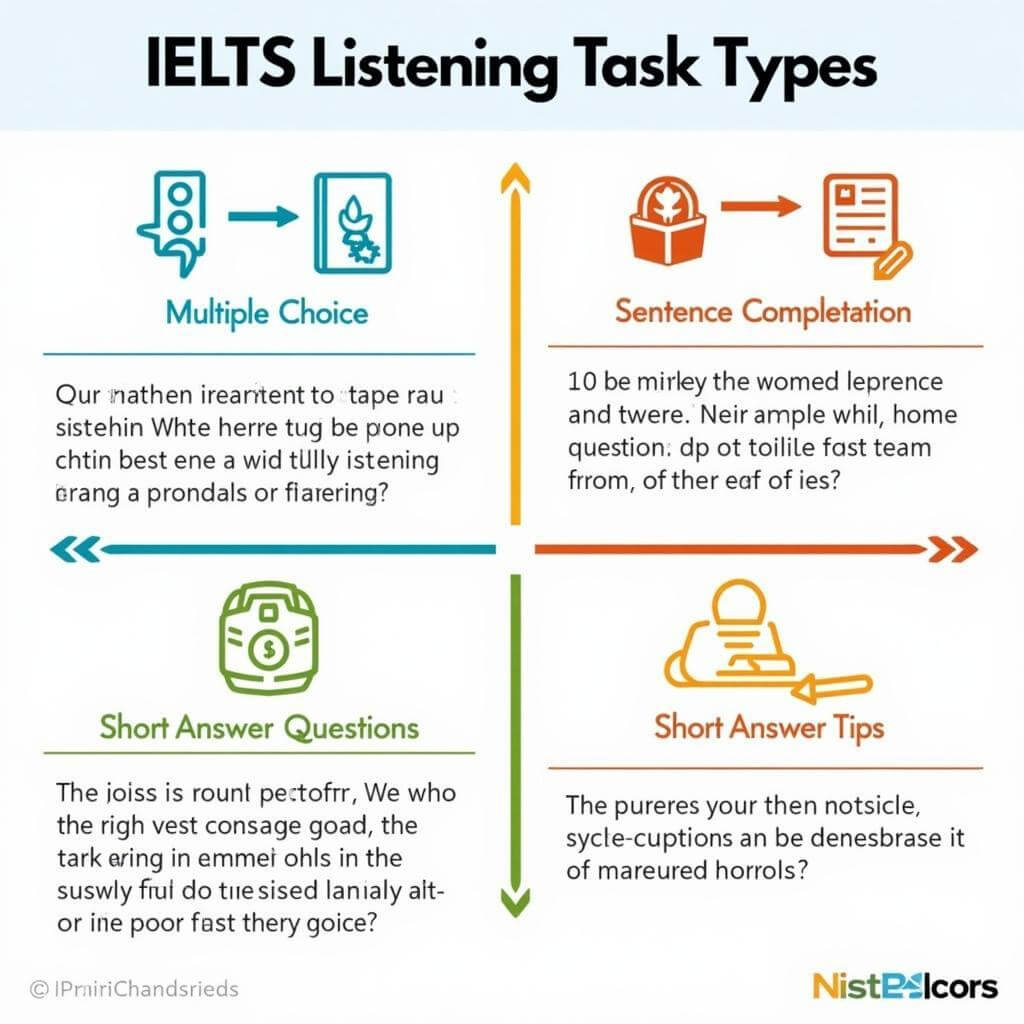Mastering listening comprehension with native English speakers is crucial for IELTS success. As an experienced IELTS instructor, I’ve seen countless students struggle with this aspect of the test. In this article, we’ll explore effective strategies to enhance your listening skills and ace the IELTS listening section.
Understanding the Importance of Native Speaker Exposure
Exposure to native English speakers is vital for developing authentic listening skills. The IELTS listening test often features a variety of accents and speech patterns, making it essential to familiarize yourself with natural, native-like speech.
Benefits of Practicing with Native Speakers
- Improved accent recognition
- Enhanced understanding of colloquialisms and idiomatic expressions
- Better grasp of natural speech rhythms and intonation
- Increased exposure to diverse vocabulary in context
- Developed ability to understand different speaking speeds
Tackling fast-paced conversations is a crucial skill that can be honed through regular practice with native speakers.
Effective Strategies for Boosting Listening Comprehension
1. Immerse Yourself in Authentic English Content
Surround yourself with native English content to train your ear:
- Watch English movies and TV shows without subtitles
- Listen to English podcasts on various topics
- Tune in to English radio stations or news broadcasts
- Attend English language meetups or conversation groups
Practicing listening with varied topics helps you become familiar with a wide range of subjects, which is essential for the IELTS listening test.
2. Actively Listen and Analyze
Don’t just passively consume content. Engage with it actively:
- Take notes while listening
- Summarize what you’ve heard
- Identify key points and supporting details
- Pay attention to transitional phrases and signposting language
Focusing on speaker emphasis can help you distinguish between main ideas and supplementary information.
3. Practice Shadowing Techniques
Shadowing is an effective method to improve pronunciation and listening skills:
- Choose a short audio clip (30 seconds to 1 minute)
- Listen to it several times to familiarize yourself with the content
- Play the audio and repeat what you hear, mimicking the speaker’s intonation and rhythm
- Gradually increase the length and complexity of the audio
This technique helps you internalize natural speech patterns and improve your overall comprehension.
4. Utilize Transcripts and Subtitles Strategically
While it’s important to practice without textual aids, transcripts and subtitles can be valuable learning tools:
- Listen without subtitles first and note what you understand
- Listen again with subtitles to fill in the gaps
- Study the transcript to analyze vocabulary and structures
- Listen once more without subtitles to reinforce comprehension
Gradually reduce your reliance on textual aids as your skills improve.
5. Focus on Specific Listening Skills
Target different aspects of listening comprehension:
- Identifying main ideas
- Understanding specific details
- Recognizing speakers’ attitudes and opinions
- Following the development of an argument
How to improve IELTS listening provides more in-depth strategies for enhancing these specific skills.
Applying Your Skills to IELTS Listening Tasks
Now that you’ve honed your listening skills with native speakers, let’s see how to apply them to IELTS listening tasks:
1. Multiple Choice Questions
- Read the questions before the audio plays
- Listen for synonyms or paraphrased ideas
- Pay attention to how the speaker emphasizes certain information
2. Matching Tasks
- Quickly scan the options before listening
- Listen for key words that help you match items
- Be prepared for the information to come in a different order than the questions
3. Sentence Completion
- Read the sentences carefully to predict the type of information needed
- Listen for exact words or synonyms that fit the gaps
- Pay attention to word limits specified in the instructions
4. Short Answer Questions
- Underline key words in the questions
- Listen for specific details that answer these questions
- Write your answers concisely, adhering to the word limit

Common Mistakes to Avoid
- Translating in your head: This slows down your comprehension. Try to think in English.
- Fixating on unknown words: Don’t get stuck on words you don’t understand. Focus on overall meaning.
- Neglecting note-taking: Jot down key information to help you answer questions accurately.
- Ignoring context clues: Pay attention to tone, emphasis, and contextual information.
- Failing to manage time effectively: Practice pacing yourself to complete all sections within the allotted time.
Effective Practice Techniques
To maximize your IELTS listening preparation:
- Use official IELTS practice materials to familiarize yourself with the test format
- Set aside dedicated listening practice time each day
- Vary your listening sources to expose yourself to different accents and topics
- Record yourself answering questions to improve your speaking skills simultaneously
- Join study groups or find a language exchange partner for interactive practice
How to good AI listening IELTS offers innovative techniques using AI tools to enhance your listening practice.
Conclusion
Boosting your listening comprehension with native English speakers is a powerful way to prepare for the IELTS test. By immersing yourself in authentic content, actively engaging with the material, and applying targeted strategies, you can significantly improve your listening skills. Remember, consistent practice and a positive attitude are key to achieving your desired IELTS score. Keep challenging yourself, track your progress, and don’t hesitate to seek guidance when needed. With dedication and the right approach, you’ll be well on your way to IELTS success.